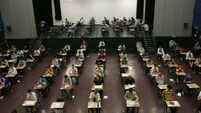Teachers have 'serious concerns' over use of AI in Leaving Cert project work

In the chemistry document, the guide to sourcing references in each student’s final submission notes 'appropriate details' should be provided of any 'material generated by AI software and AI applications' such as ChatGPT.
Teaching unions have expressed “serious concerns” after guidelines were issued for project work at Leaving Cert level that would allow artificial intelligence (AI) to be used as source material.
Guidelines were issued earlier this week by the National Council for Curriculum and Assessment for at least four subjects – chemistry, biology, physics, and business – as part of the new additional assessment component (AAC) - which will go live next September.













